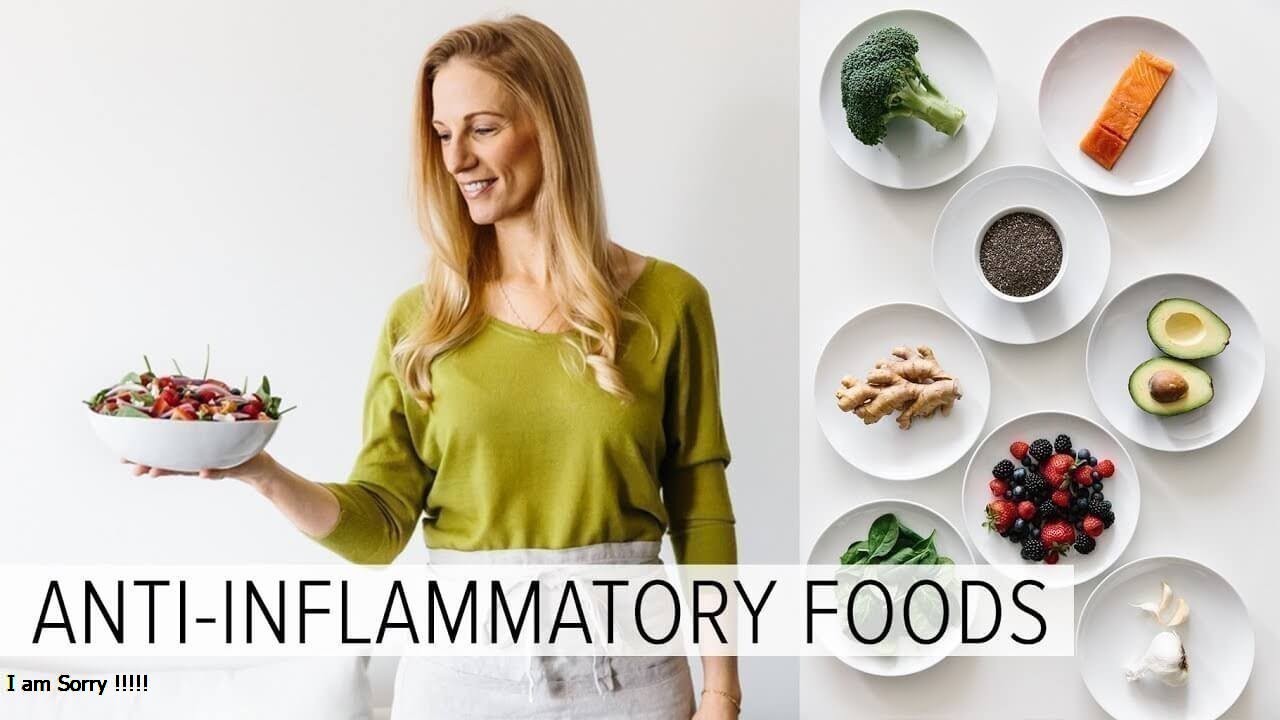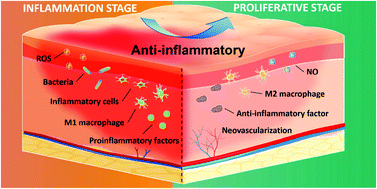The Art of Healing through Nutrition: Exploring Anti-Inflammatory Foods and Their Benefits
In a world where health is paramount, the role of nutrition in our well-being cannot be overstated. The journey to optimal health often begins with what we put on our plates. In this article, we delve into the fascinating realm of anti-inflammatory foods and their profound impact on our overall health. From understanding the basics to exploring their benefits, we uncover the art of healing through nutrition.
Table of Contents
- Introduction: The Link between Inflammation and Health
- What are Anti-Inflammatory Foods?
- The Science Behind Inflammation and Healing
- Key Nutrients in Anti-Inflammatory Foods
- Exploring a Rainbow of Colors: Variety in Plant-Based Anti-Inflammatory Foods
- Fatty Fish and Omega-3 Fatty Acids: Nature’s Anti-Inflammatory Agents
- The Magic of Spices and Herbs: Culinary Delights with Healing Powers
- Nourishing Your Gut: Fiber, Probiotics, and Anti-Inflammatory Effects
- Anti-Inflammatory Fruits: Nature’s Sweet Gift to Your Health
- The Mediterranean Diet: A Holistic Approach to Inflammation Reduction
- Crafting Your Anti-Inflammatory Plate: Practical Tips for Everyday Eating
- The Synergy of Exercise and Anti-Inflammatory Nutrition
- Lifestyle Factors and Their Impact on Inflammation
- Cooking Techniques That Preserve Anti-Inflammatory Properties
- Mindful Eating: A Wholesome Approach to Anti-Inflammatory Living
Introduction: The Link between Inflammation and Health
Inflammation is a double-edged sword in our bodies. While it’s a natural defense mechanism against harmful stimuli, chronic inflammation can lead to various health issues, including cardiovascular diseases, diabetes, and even cancer. This is where the concept of anti-inflammatory foods comes into play.
What are Anti-Inflammatory Foods?
Anti-inflammatory foods are those that possess natural compounds capable of reducing inflammation within the body. These foods are rich in antioxidants, vitamins, minerals, and other bioactive compounds that help counteract the effects of chronic inflammation.
The Science Behind Inflammation and Healing
At the core of inflammation lies a complex biological response designed to protect the body from harm. However, when the balance tips and inflammation becomes persistent, it can lead to tissue damage and disease. Anti-inflammatory foods work by modulating the body’s inflammatory pathways, promoting healing and overall wellness.
Key Nutrients in Anti-Inflammatory Foods
Certain nutrients play a crucial role in the anti-inflammatory effects of foods. These include omega-3 fatty acids, polyphenols, flavonoids, and carotenoids. Omega-3 fatty acids, found in fatty fish and flaxseeds, are particularly renowned for their potent anti-inflammatory properties.
Exploring a Rainbow of Colors: Variety in Plant-Based Anti-Inflammatory Foods
The vibrantly colored array of fruits and vegetables isn’t just visually appealing; it’s a testament to the diversity of nutrients they offer. From the deep purple of blueberries to the bright orange of sweet potatoes, these foods provide an assortment of antioxidants that combat inflammation.
Fatty Fish and Omega-3 Fatty Acids: Nature’s Anti-Inflammatory Agents
Fatty fish, such as salmon, mackerel, and sardines, are prized sources of omega-3 fatty acids. These essential fats not only reduce inflammation but also support heart health and cognitive function.
The Magic of Spices and Herbs: Culinary Delights with Healing Powers
The culinary world is replete with spices and herbs that do more than just enhance flavor. Turmeric, ginger, cinnamon, and garlic are just a few examples of ingredients celebrated for their anti-inflammatory and medicinal properties.
Nourishing Your Gut: Fiber, Probiotics, and Anti-Inflammatory Effects
A healthy gut is a cornerstone of overall well-being. Foods rich in fiber and probiotics, such as yogurt and fermented vegetables, foster a balanced gut microbiome, which in turn can help mitigate inflammation.
Anti-Inflammatory Fruits: Nature’s Sweet Gift to Your Health

Nature’s candy comes in the form of anti-inflammatory fruits. Berries, cherries, oranges, and grapes are not only delicious but also brimming with antioxidants that combat oxidative stress and inflammation.
The Mediterranean Diet: A Holistic Approach to Inflammation Reduction

The Mediterranean diet has earned acclaim for its ability to promote heart health and longevity. Centered around olive oil, vegetables, whole grains, and lean proteins, this diet embodies the principles of anti-inflammatory eating.
read more about Keto for Vegetarians: How to Maintain Ketosis without Meat”
Crafting Your Anti-Inflammatory Plate: Practical Tips for Everyday Eating

Incorporating anti-inflammatory foods into your diet need not be a daunting task. Simple swaps, mindful portion control, and a focus on whole foods can effortlessly transform your eating habits.
The Synergy of Exercise and Anti-Inflammatory Nutrition

Physical activity and nutrition are intertwined when it comes to inflammation management. Regular exercise complements an anti-inflammatory diet by enhancing circulation, reducing adipose tissue, and promoting overall vitality.
Lifestyle Factors and Their Impact on Inflammation
Beyond diet and exercise, lifestyle factors like stress management, sleep quality, and smoking cessation can significantly influence inflammation levels. A holistic approach to health addresses these variables in tandem with nutritional choices.
Cooking Techniques That Preserve Anti-Inflammatory Properties
The way you prepare food matters. Certain cooking methods, such as steaming, baking, and sautéing, help retain the nutritional integrity of anti-inflammatory foods, ensuring that their benefits aren’t lost in the process.
Mindful Eating: A Wholesome Approach to Anti-Inflammatory Living

Mindful eating involves savoring each bite, paying attention to hunger and fullness cues, and cultivating a healthy relationship with food. This approach not only supports digestion but also encourages a mindful attitude towards inflammation management.
Conclusion
In the realm of health and wellness, anti-inflammatory foods emerge as a powerful tool for fostering a balanced and vibrant life. Through the intricate interplay of nutrients and compounds, these foods hold the potential to mitigate chronic inflammation and its associated health risks. Embracing the art of healing through nutrition empowers us to make conscious choices that nurture our bodies and enhance our well-being.
FAQs
- Q: Are all fruits considered anti-inflammatory? A: While many fruits possess anti-inflammatory properties due to their antioxidant content, certain fruits like berries and cherries are particularly renowned for their anti-inflammatory benefits.
- Q: Can an anti-inflammatory diet replace medical treatment? A: An anti-inflammatory diet can complement medical treatment and promote overall health, but it’s important to consult with a healthcare professional for personalized advice.
- Q: Is it necessary to completely eliminate all inflammatory foods? A: It’s not necessary to eliminate all inflammatory foods. Focus on incorporating more anti-inflammatory foods while still enjoying a balanced diet.
- Q: How quickly can I expect to see results from an anti-inflammatory diet? A: Results vary depending on individual factors, but some people may start to notice positive changes within a few weeks of adopting an anti-inflammatory diet.
- Q: Can children follow an anti-inflammatory diet? A: Children can benefit from a diet rich in anti-inflammatory foods, but it’s essential to ensure they receive all necessary nutrients for growth and development.











 Viesearch - The Human-curated Search Engine
Viesearch - The Human-curated Search Engine
